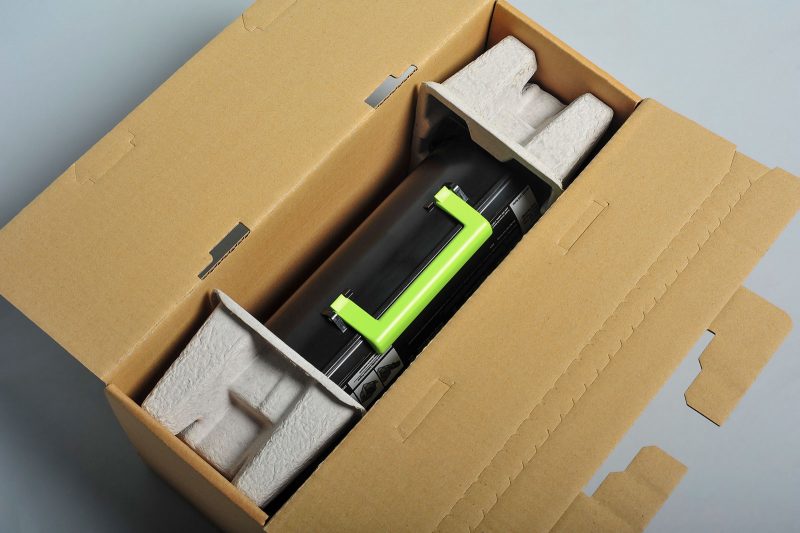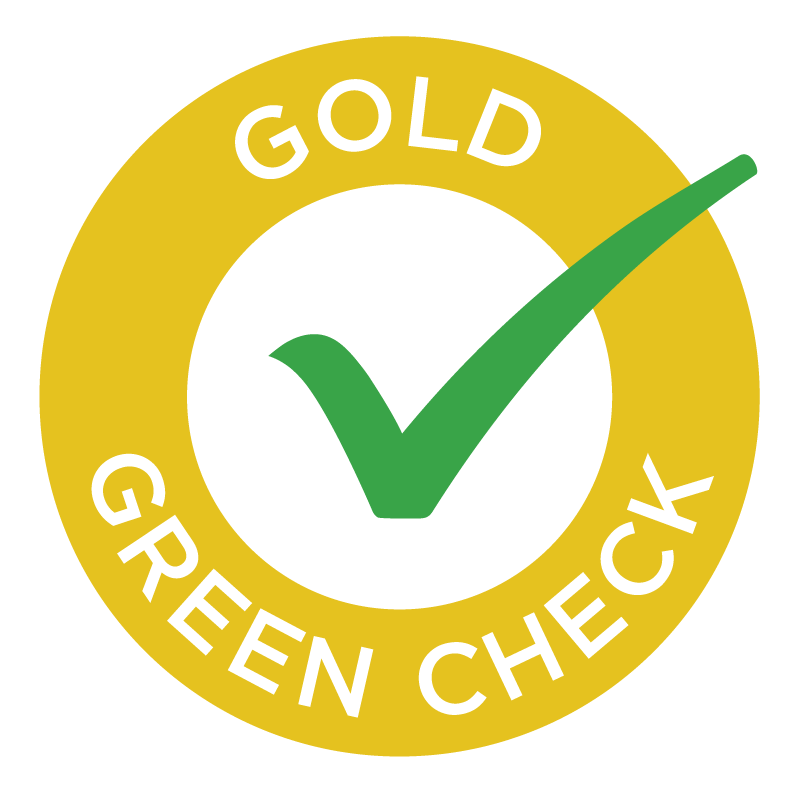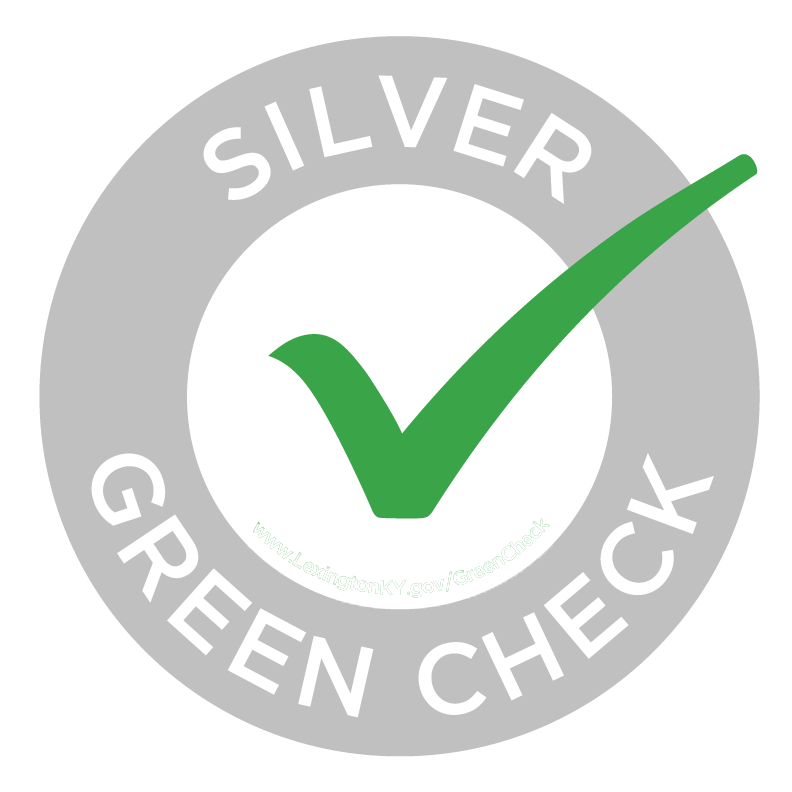Lexmark sells its products and services in more than 170 countries, and is a recognized global leader by many of the technology industry’s leading market analyst firms. Lexmark has also acquired and integrated several strategic software companies since 2010, further expanding the company’s breadth of offerings to include innovative software solutions.
Today the company competes in key growth markets that include managed print services, intelligent capture, enterprise content management, healthcare content management, financial process automation and enterprise search – all focused on helping Lexmark customers connect employees to the most relevant information at the moment they need it.
Current Sustainable Practices
Below are the initiatives Lexmark has completed on the Green Check scorecard.
Sustainability Management and the Green Team
- Develop a written Comprehensive Sustainability Plan that includes goals in these categories: Sustainability Goals, Roles and Responsibilities, Policies and Procedures, Activities and Impact, and Timelines
- Designate a Sustainability Coordinator or Green Team responsible for managing sustainability initiatives.
- Hold quarterly Green Team meetings.
- Provide time for quarterly updates from Sustainability Coordinator in upper management meetings.
Awareness, Education, and Outreach
- Provide a sustainability information board in a common area such as a break room or kitchen
- Include a sustainability statement and training in all new hire materials.
- Host annual trainings or workshops to educate employees about sustainability issues, policies and procedures
- Promote sustainability accomplishments in external marketing materials (website, social media, newsletter, press releases, TV/radio ads).
- Highlight sustainability efforts or initiatives at career fairs or career days.
- Provide volunteers for community environmental projects annually.
- Host an environmental event at your location.
- Sponsor an environmental booth at an existing community event.
- Participate in a present or attend sustainability workshop.
Energy Efficiency
- Assess, track, and document energy consumption using Energy Star Portfolio Manager or similar program.
- Establish a power-down policy and checklist that includes items such as shutting off lights at night.
- Set water heater thermostats to a maximum of 120 degrees or install an inline water heater.
- Replace incandescent lights with compact fluorescent lights (CFLs)- 50-75% replacement.
- Delamp vending machines (on automatic sensors).
- Achieve a year-over reduction in energy usage from the baseline of at least 5%.
- Establish a regular filter maintenance policy for your HVAC system.
- Have your HVAC system evaluated every 2 years by a certified service provider.
- Install power strips for computers and equipment to power down during non-business hours.
- Install occupancy sensors in bathrooms, meeting room, and other infrequently used areas.
- Conduct an energy audit or assessment (within the last three years).
- Insulate roof to control energy loss.
- Take measures to insulate HVAC system and ductwork to minimize heat loss.
- Assess building envelope and address any leaks.
- Perform external lighting audit.
- Daylight work spaces wherever possible.
Waste Reduction and Recycling
- Implement a basic recycling program.
- Conduct a waste audit (within the past two years).
- Provide clearly marked recycling bins at work stations and/or in common areas. Recycling bins must be paired with a waste bin.
- Use reusable mugs and dishware instead of disposable plates, cups, and utensils.
- Establish a policy for environmentally friendly printing such as twosided printing, reusing copy paper, and electronic document sharing.
- Establish an electronic waste policy that diverts all e-waste away from landfill.
- Create a landfill diversion goal.
- Replace at least 50% of paper stock with post-consumer recycled paper.
- Host, sponsor, or participate in a zero-waste event.
Water Conservation
- Assess, track, and document water consumption using Energy Star Portfolio Manager or similar program.
- Conduct a water audit within the last three years. Monitor and record water usage, check indoor and outdoor pipes and fixtures for drips and leaks.
- Establish a policy for purchase of high efficiency (i.e. WaterSense) rated fixtures and appliances.
- Install water efficient faucets in all of the restrooms.
- Install water efficient toilets in all of the restrooms.
Water Quality
- Establish a policy for proper hazardous waste and chemical disposal.
- Organize or participate in a storm drain stenciling.
- Establish a policy for proper disposal of fats, oils, and grease, distribute to staff, and post in key areas.
- Harvest rainwater through rain barrel system.
- Coordinate or participate in a community litter clean-up.
- Install outdoor ash trays to prevent cigarette litter, and make pocket ash trays available to staff who smoke.
Urban Forestry and Landscapes
- Participate in a community reforestation project.
- Establish a native species-only plant replacement policy for tree and shrub planting.
- Remove all invasive species from property.
- Establish an Integrated Pest Management policy to reduce use of pesticides in the landscape.
- Establish environmentally friendly lawn care policies to reduce chemical pesticide and fertilizer use.
- Plant a pollinator garden.
- Plant a rain garden.
- Audit irrigation system for leaks (within last three years).
Sustainable Purchasing
- Establish a policy for reducing the toxic chemicals/materials in your workplace.
- Establish a policy to purchase non-Styrofoam cups and plates for use at the workplace or at events.
- Establish a policy to purchase/lease EPA SmartWay Certified fuel-efficient vehicles.
- Establish a policy for purchasing environmentally-friendly cleaning products.
Transportation Efficiency
- Establish an incentives or recognition program to encourage employees to use alternative transportation, such as carpooling, bicycling, or use of public transit.
- Establish and implement a no-idling policy.
- Hold an employee seminar highlighting alternative modes of transportation.
- Conduct a commuter or employee transportation survey.
- Adopt a telecommuting option and make it available to employees.
- Designate parking spaces for hybrid vehicles and/or install EV charging stations.
- Install a bike rack with sufficient space for at least 10% of your employees.
- Install weather-protected bike storage (indoor or outdoor).
- Participate in a bike to work challenge.
- Place bicycle storage closer than any other designated parking spot.
Innovation
- Become LEED certified.
- Become Energy Star certified.
- Install a 300-gallon or above water catchment system.










